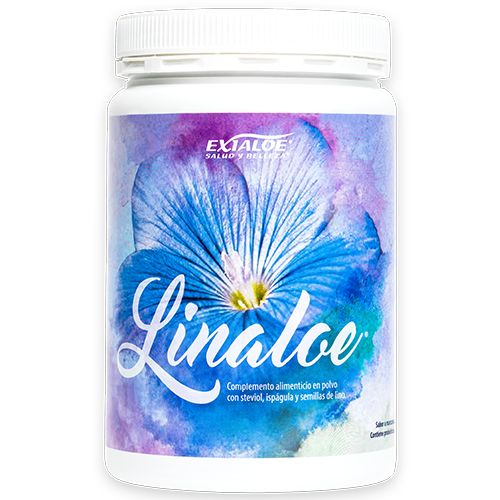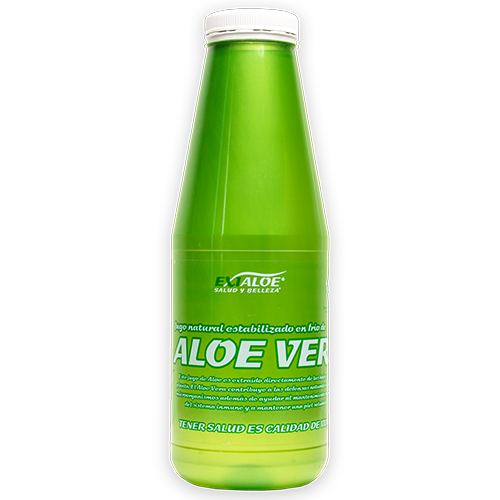
Intestinal flora: Functions and benefits
Surely you have heard many times about the 'intestinal flora', for example, in yogurt ads. But is it really something so important? What functions does it perform in our body? Let's find out the answer to these and more questions.
The intestinal flora, also called microbiota, is a set of microorganisms that live in symbiosis in our intestine. We coexist with these microorganisms shortly after birth and they accompany us throughout our lives.
Intestinal flora provides us with invaluable assistance for our health and well-being:
- Nutritionally: It favors the absorption of compounds such as vitamins and minerals. In fact, some vitamins like vitamin K (useful for wound healing) and some from the B group (such as vitamin B6 which regulates the proper functioning of sugars, fats, and proteins) we would not be able to absorb them on our own.
- Protects: The digestive system is the part of our body that receives the most attacks from pathogenic bacteria, with 90% of the total attacks. Intestinal flora serves as a protective barrier to prevent the vast majority of these attacks from affecting us.
- Immunity: It helps fight bacteria, viruses, or diseases that have managed, by any means, to enter our body. It activates and strengthens the immune system by increasing our defenses and speeding up our recovery time.
What is it composed of?
It is formed by approximately 100 trillion beneficial bacteria for our organism, more than the amount of stars in the Milky Way! These bacteria are divided into 4 main groups and in our body they form around 400 different species, although scientific studies conducted over the years have discovered that there are around 2,000 different species.
To give us an idea of the importance of intestinal flora for us, it is estimated that the total weight of these beneficial bacteria in our organism is from 300 to 600 grams, reaching in some known cases up to 2 kg, more than a liver! Knowing this helps us understand how important a healthy intestinal flora is for us. It's like having an extra organ!
What negatively affects the intestinal flora?
Poor diet: Lack of fiber and excess meat, fats, and sugar negatively affect the intestinal flora.
Bad lifestyle habits: Such as stress, sedentary lifestyle, tobacco, alcohol, lack of sleep...
Aging: Unfortunately, this factor is beyond our control, but from the age of sixty, the number of beneficial bacteria decreases, causing an increase in diseases, infections, and digestive symptoms.
Viral or bacterial infections and other digestive diseases: Some like Crohn's disease or ulcerative colitis alter the intestinal flora.
Postoperative treatments: Such as radiotherapy or surgery.
Medications: Although in some cases medications help fight certain diseases, their use negatively affects the intestinal flora, such as antibiotics.
Traveling to other parts of the world: The bacteria in our intestinal flora may suffer when facing pathogens from other places to which they are not accustomed.
When the intestinal flora weakens or imbalances occur, the possibility of contracting infections, allergies, dermatitis... increases, as well as digestive problems such as constipation, diarrhea, poor digestion, gas, or bloating.
How can we strengthen the intestinal flora?
Eating fiber-rich foods: The bacteria that are part of our intestinal flora feed mainly on fiber. Fruits, vegetables, whole grains, legumes, nuts, and seeds are a great source of fiber.
Avoiding added sugars and artificial sweeteners (typical of 0% drinks): These sweeteners alter the balance of the intestinal flora.
Improving our lifestyle habits: Having a fixed schedule for going to bed and getting enough sleep, limiting alcohol consumption and avoiding tobacco, managing stress better, exercising regularly, among other practices that will help keep our intestinal flora healthy.
Taking probiotics: It's like calling for 'reinforcements'. Probiotics are live bacteria found in products like yogurts, kombucha, or Linaloe, and they take their place to strengthen the digestive system.
Taking prebiotics: Prebiotics are nutrients that serve as food for the bacteria that make up the flora. Taking products with prebiotics helps the development and strengthening of the flora.
Consulting a professional: Earlier we mentioned that around 2,000 types of bacteria that can be part of the intestinal flora are known, although people have around 400 in our organism. This means that a specialist can provide us with personalized recommendations on how to care for and strengthen our intestinal flora.
Recommended products to strengthen the intestinal flora:

Linaloe The jewel in the crown for intestinal flora, its synergistic combination of beneficial fibers, natural plants, vegetable enzymes, prebiotics, and probiotics, accompanied by Aloe Vera make it an excellent ally for overall health.
Luna Because of its content of plants, seaweed, and fibers, it has excellent activity for weight control and as an intestinal regulator thanks to its satiating effect, stimulating the basal metabolism, as an intestinal regulator, diuretic, and relaxing.
In its formula, we also find Guar Gum and Glucomannan, rich in fiber with prebiotic function by serving as natural food for our intestinal flora.


100% Natural Aloe Juice Aloe Vera is a natural prebiotic due to its polysaccharide content, which serves as natural food for the intestinal flora.
There are many more, we recommend exploring the store and discovering all the options.
Featured articles
How to Take Care of Your Eyes in the Digital Age
Today, we strain our eyes more than ever. In this article, we discuss the modern challenges facing our visual health...Read More
Successfully Overcome Seasonal Allergies
Do you suffer from seasonal allergies or know someone who does? In Spain, 1 in 4 people are affected, but this year...Read More
4 Habits to Care for Your Hair the Way It Deserves
In this article, we'll explore 4 simple habits to give your hair the care it deserves. By following these tips,...Read More







